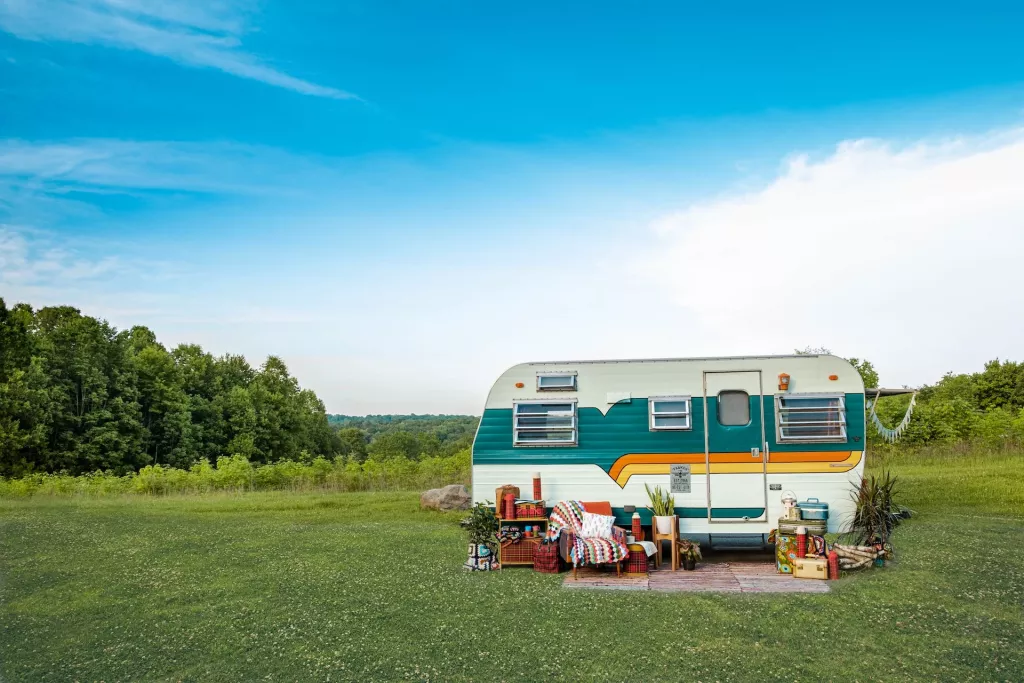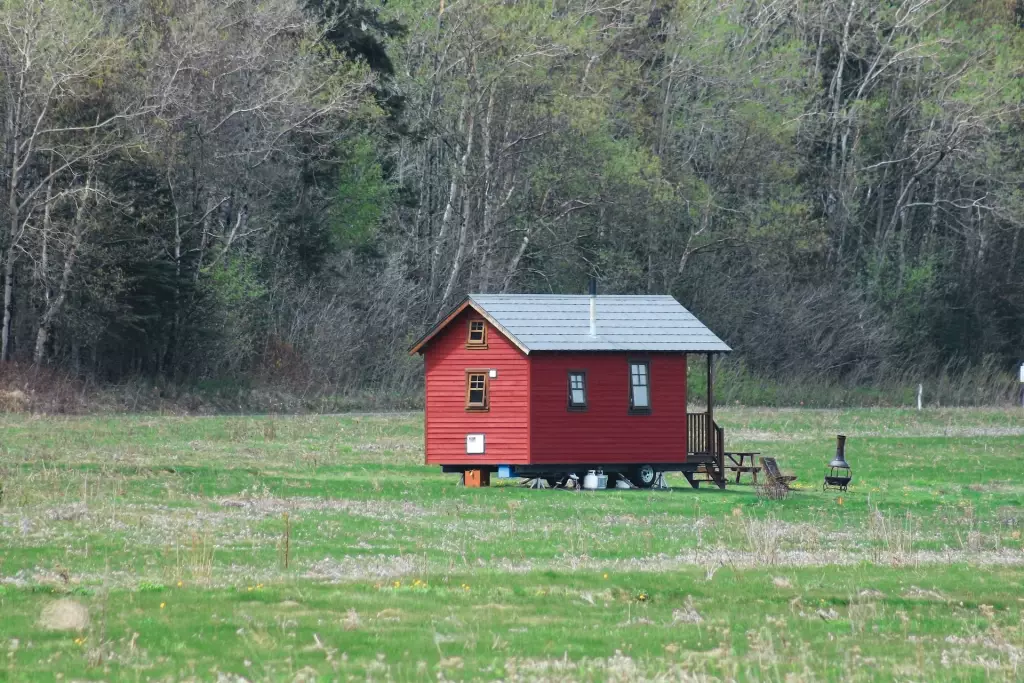Living on Agricultural Land Without Planning Permission
Buying agricultural land at low costs and building it into a farm or small holding can be a dream come true for some people in the U.S. and the U.K. But long journeys can be a challenge if your main residence and the farmland are too far apart. In this instance, would living on agricultural land without planning permission be a good idea?
Whether you live in the U.S. or in the U.K., living on agricultural land without planning permission can result in penalties like forcing you to vacate the land, tearing down any unauthorised buildings, hefty fines, court orders, and even imprisonment.
Continue reading below to find out how you're imposed with penalties and what fines you might incur for moving into your agricultural land without planning permission in the U.S. or in the U.K.
Summary
- In both the U.S. and the U.K., violating zoning or land use regulations may result in fines, notices of violation, or criminal charges.
- In the U.K., experienced professionals such as architects, planning consultants, and solicitors can help you obtain planning permission from the local council.
- Getting planning permission in both the U.S. and the U.K. can be a complex and time-consuming process.
- Some U.S. states and localities have a streamlined process for obtaining planning permission.

On this page:
Living on Agricultural Land Without Planning Permission in the U.S.
Living on agricultural land without planning permission in the U.S. is not as difficult as it may seem. In some states, there are specific laws that enable people to live on agricultural land without seeking planning permission from the local authorities.
However, it is important to understand the rules and regulations of each state before attempting to do so. It is also important to note that these rules vary from state to state and can change over time, so it is best to keep up with any changes in order to remain compliant with the law.
One way is to visit the state’s website and check the information about living on agricultural land without planning permission. Or you can also give the local government office a call or send an email to inquire about the technicalities of living on agricultural land without planning permission.
U.S. Penalties for Living on Agricultural Land Without Planning Permission
Living on agricultural land without planning permission can lead to significant penalties in the United States. Farmers, ranchers, and other landowners must be aware of the rules and regulations regarding living on agricultural land or face potential fines or other consequences.
In many cases, violators may receive a citation or notice of violation and be required to cease the unauthorized use of the property or obtain the necessary permits.
Fines can also be levied for violating zoning or land use regulations. In some cases, particularly for repeat offenders or for violations that cause harm to the environment or public health, criminal charges may be filed.

The specific penalties and consequences of violating zoning laws can vary widely, so it is important to consult with local authorities and obtain the necessary permits before using agricultural land for residential purposes.
Getting planning permits for your land in the US can be complex
The process of getting planning permits can be a complex and time-consuming one. Generally, the process involves submitting an application to the local planning department, paying any necessary fees, and attending public hearings.
It isn’t uncommon for applicants to experience challenges and setbacks from neighbours and local officials. However, some states and localities have developed a more streamlined process, such as California, Colorado, Florida, Georgia, Minnesota, Oregon, and Texas.
It is recommended to check with your local planning department or seek legal advice for specific information on obtaining planning permission for your agricultural projects.
Living on Agricultural Land Without Planning Permission in the U.K.
In the U.K., living on agricultural land without planning permission is allowed, but it depends on several factors.
First, if your agricultural land is 5 hectares or more, you have the right to erect, extend, or alter a building. Permitted types of development may include temporary use of land, sub-sized farm buildings, forestry buildings, trailer parks, and related buildings.
If you have built and lived in a building on your property and it has not been detected for a period of time, you will need to prove its permanence in order to get the right to live there.
Second, if your agricultural plan is fairly ambitious, requires a good image, relies on large capital costs, or is funded by individuals who are not open to a "direct action" approach, it might be best to apply for a residence permit before proceeding.
But if your project is relatively small, unobtrusive, and doesn't rely on large capital expenditures, moving to the country first will almost always put you in a stronger position. However, it is advisable to prepare suitcases in advance in case the planner arrives.
Third, if you’re looking to build or renovate a property, you can temporarily move into a static caravan for 28 days. However, if you’re looking to move in on a permanent basis, you will need to file for planning permission with the local council.

U.K. Penalties for Living on Agricultural Land Without Planning Permission
Living on agricultural land without planning permission can be a violation of planning laws in the UK. Specifically, it can be a breach of the Town and Country Planning Act 1990, which requires planning permission for any development on the land, including residential structures.
If you are found to be living on agricultural land without permission, you may be issued an enforcement notice by the local planning authority, requiring you to vacate the land and remove any unauthorized structures. Failure to comply with the notice can result in further legal action, including fines and court orders.
The level of penalty will depend on the severity of the violation and the discretion of the local authority. In general, fines can range from a few hundred to several thousand pounds, and court orders may require you to remove any unauthorized buildings or structures on the land.
Getting planning permits for your land in the UK can be complicated
Getting planning permission on land in the U.K. can be a lengthy and complicated process. Depending on the type of development proposed and the location of the land, you’ll also have to consider factors such as local planning policy, environmental considerations, and community objections, which can all affect the outcome of a planning application.
But it isn’t impossible to obtain; many people have successfully secured planning permits for their agricultural projects with the help of experienced professionals such as architects, planning consultants, and solicitors.
Here are some things you’ll need to do when applying for planning permission:
-
Consider your budget and finances. How much money do you need to complete your project? Do you need a bank loan? What’s your budget for the project?
-
Consult with the experts. It is better to seek advice from professionals who can help you get it right the first time rather than repeatedly going back and applying for planning permission.
-
Think of a good plan. Provide the planning officials with a bird's-eye view of what you’re going to do with your project. If you provide too few details, they’re most likely to reject your plan.
-
Submit the application. You can submit your application to the local planning office. Some officials may visit and survey the area to calculate if you’re having a positive or negative impact on the land.
-
Wait until your application gets approved. In many cases, it takes within 8 weeks for your planning application to get approved or rejected.



